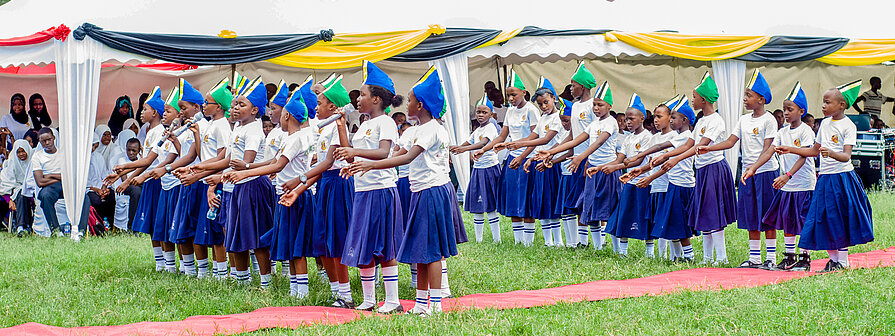German Sparkassenstiftung Eastern Africa in Tanzania
Our office in Tanzania is based in Dar es Salaam.
A Portrait of Tanzania
Tanzania is a country in East Africa that has a population of 61.74 million, according to the census results for 2022 provided by the Tanzania National Bureau of Statistics. About 64% of the population lives in poverty and 32% in extreme poverty. Tanzania is ranked Tanzania is ranked 165th out of 193 in the Human Development Index report 2025. However, according to the Bank of Tanzania report 2023/24 the economy has grown at 5.1%, compared with 4.7% in 2022 despite the slowdown of the global economy.
According to the 2023 FinScope report, only 18.7% of the population remains financially excluded from the formal sector. Particularly, youth and rural residents who depend on agriculture and other activities are among the most excluded individuals. Families remain the biggest supporter in terms of financial hardship.
Our vision and activities
German Sparkassenstiftung Eastern Africa (DSIK) started its operations in Tanzania in 2012 and became registered as an I-NGO in 2019. DSIK in Tanzania worked successfully in Dar es Salaam and Mwanza for more than six years. In January 2023 the head office was shifted to Dar es Salaam, and subsequently, the offices were merged, with only the one in Dar es Salaam remaining to ensure the continuous delivery of high-quality services to our partner institutions.
German Sparkassenstiftung continue to strengthen and professionalize the microfinance sector and promote vocational and financial education of broader segments of society to enhance financial inclusion and hence reduction of poverty in Tanzania.
DSIK in Tanzania is successfully working toward these goals with the current partner Savings and Credit Cooperative Union League of Tanzania (SCCULT). DSIK in Tanzania has also partnered with various other partners such as TAMFI (Tanzania Association of Microfinance Institutions), TCDC (Tanzania Cooperative Development Commission), SELF MF (SELF Microfinance Fund), ACB (Akiba Commercial Bank), TPB Bank PLC (former Tanzania Postal Bank), KARUDECA (Karagwe Rural Development and Environmental Conservation Agency) under different projects of strengthening the microfinance sector through capacity building, vocational training, financial education, Business Games, providing strategic consultancy and digitalization.


